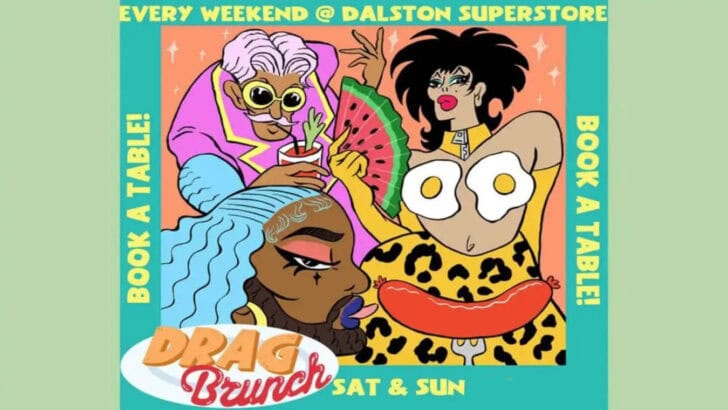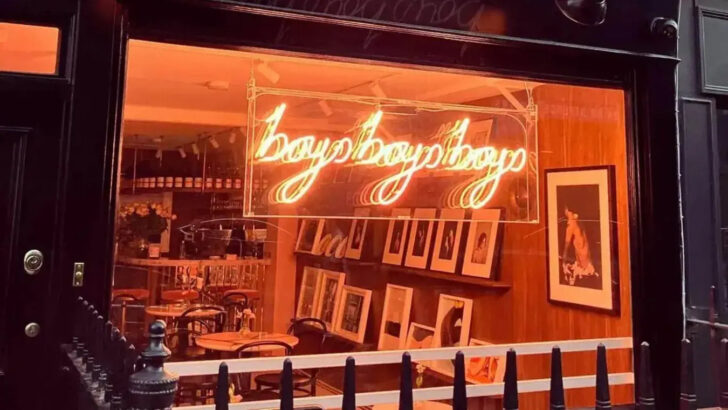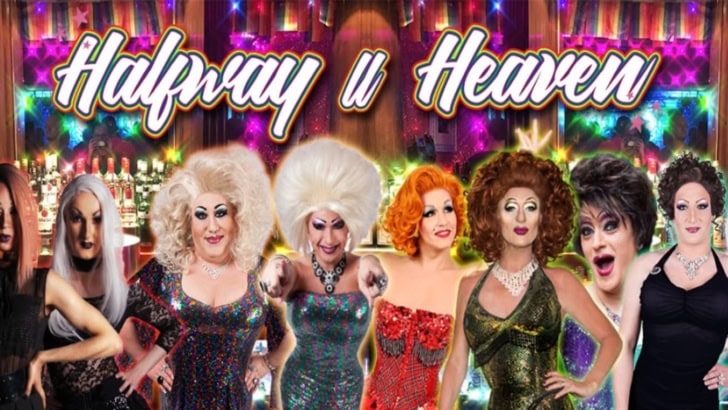One of the most significant figures in gay cultural and political history, VITO RUSSO was relentless in taking on both society and government. Before his death at 44 in 1990, he was at the epicentre of the struggle for gay rights, pushing Hollywood to change its attitudes and challenging politicians to end the Aids epidemic. Jack Leger explores the extraordinary impact of this queer hero…
“The amazing thing about Vito,” says his biographer Jeffrey Schwarz, “is that he was right there in the middle of everything, every single step of the way. I can’t think of a better life that would exemplify that period of time. I mean, he was sitting in a tree watching the Stonewall riots unfold, he wrote the seminal queer film book The Celluloid Closet, and he was a founding member of Glaad and Act Up. His fingerprints are not only all over the movement, but also our whole gay way of life today. All without most people even knowing how much he contributed.”
Born in 1946, Vito Russo grew up knowing that his sexuality wasn’t his choice, so he refused to accept anyone telling him that being gay was evil. As a young man in New York, he resented the rampant police persecution, but it wasn’t until that night in 1969, watching the riots at the Stonewall Inn, that he realised this was a political issue. And he began to confront the ways society was persecuting gay men.
As a film archivist, Vito was fascinated by how gays were portrayed in the movies. Before America’s 1930 Production Code, there was a rich and often rather raunchy depiction of diverse sexuality. Then over the next thirty-nine years, the Code forbade any reference to homosexuality. In his studies, Vito saw how filmmakers undermined the censors. Alfred Hitchcock filled movies with subliminally gay characters. And no one missed the sexual overtones of Peter Lorre in Casablanca, Sal Mineo in Rebel Without A Cause or Laurence Olivier in Ben-Hur.
So Vito started screening these films at the Gay Activists Alliance, quickly realising that gay audiences picked up on subtext mainstream audiences missed. “Whether it’s The Wizard of Oz or Auntie Mame, seeing it with a queer audience is a completely different experience,” says Schwarz. “Vito knew that, and he encouraged that to bring people who would never have gone to a political meeting.”
Vito’s love of cinema was inextricably linked with his political activism. “Because he was fiercely political and also a movie queen, he felt betrayed by the movies because of the way gay people were depicted,” Schwarz says. “Even in the 1970s, they were just the clown, the villain or the suicide victim at the end of the film. Nothing good could come of being this way, right? Vito was one of the first people to create an argument about this: that the way we were depicted did great psychological damage to ourselves, and that it reflected what the general public thought of us.”
This argument was the basis for his involvement in the early gay liberation movement, encouraging homosexuals to come out, showing the world who they really were as opposed to the stereotypes. And he changed Hollywood in the process. When first published in 1981, The Celluloid Closet became an instant bestseller and an essential book for any film lover. “It was really the first time the gay community was talking back to Hollywood,” Schwarz says. “And now we’re almost in a place where Hollywood is too careful about how we’re depicted. We have to be presented almost as perfect, which I’m not sure is so great either! I think that Vito started the conversation, and it was right after he died that Queer Nation did a big protest at the Academy Awards the year of JFK and Silence of the Lambs. They used his book as their bible, and Hollywood had to sit up and take notice.”
“More than 20 years after his death, Vito’s influence is felt at every level of culture”
Schwarz believes that Vito would have loved Javier Bardem’s villain in Skyfall. “There’s the suggestion at least that the villain is gay, and maybe there’s something about James Bond too,” he says. “But it was celebrated as part of his seductiveness. And now we’re at a place where James Bond can be comfortable flirting with another man on-screen. It’s a great thing.”
More than 20 years after his death, Vito’s influence is felt at every level of culture, from the dismantling of movie and TV stereotypes to the huge public shift in attitudes toward gays in the military and marriage equality.
This impact is also reflected in a stream of documentaries about the horrific 1980s Aids epidemic: United In Anger traces the history of Act Up, We Were Here explores the experience of survivors, and the Oscar-nominated How To Survive A Plague combines the activism story with intensely emotional first-hand accounts. “It’s a zeitgeist moment, and I’m sure there will be more films,” says Schwarz. “There are thousands of stories to tell! Enough time has gone by that the people who lived through this are ready to tell their stories and revisit that extremely difficult period in their own lives. And they want younger people to really understand what our community achieved, and how the freedoms that they have today are due to the previous generation.”
But is today’s generation interested in history? Schwarz says, “There’s an amnesia that I’m very concerned about in terms of queer history. It’s a wonderful thing that young people can wake up in the morning and be exactly who they are. But without an awareness of the sacrifices that a previous generation made, the pendulum could clearly swing back the other way. And all of these freedoms that we take for granted could be taken away.”
As an example he mentions how HIV and Aids are now seen as a manageable condition. This may be true, but it’s representative of a cavalier attitude. Schwarz says, “This is because they haven’t seen the ground underneath their feet just open up. So when I talk to younger people about this I say, ‘Imagine your five best friends just dying before your eyes, and there’s nothing you can do about it. The government doesn’t give a shit about you, and the church is saying that you deserve it.’ I made Vito to tell his story, but also because the gay community rallied together and created such a strong bond after Stonewall that when Aids hit we were ready for it. Because no one else was going to save us. I wonder if it would be the same today, because we are so much more integrated into the general public.”
And there are still very real threats to our freedoms. Even in America and the UK, living in true equality is almost impossible. “Kids are still being taught to hate themselves every day,” Schwarz says, “and there’s still institutionalised homophobia. So that is coming from somewhere. And Vito teaches us that we have no right to be complacent.”
• Vito is out now on Peccadillo DVD. In addition, The Celluloid Closet was turned into an excellent film in 1995, and Vito Russo also features in the acclaimed 1989 doc Common Threads.




















